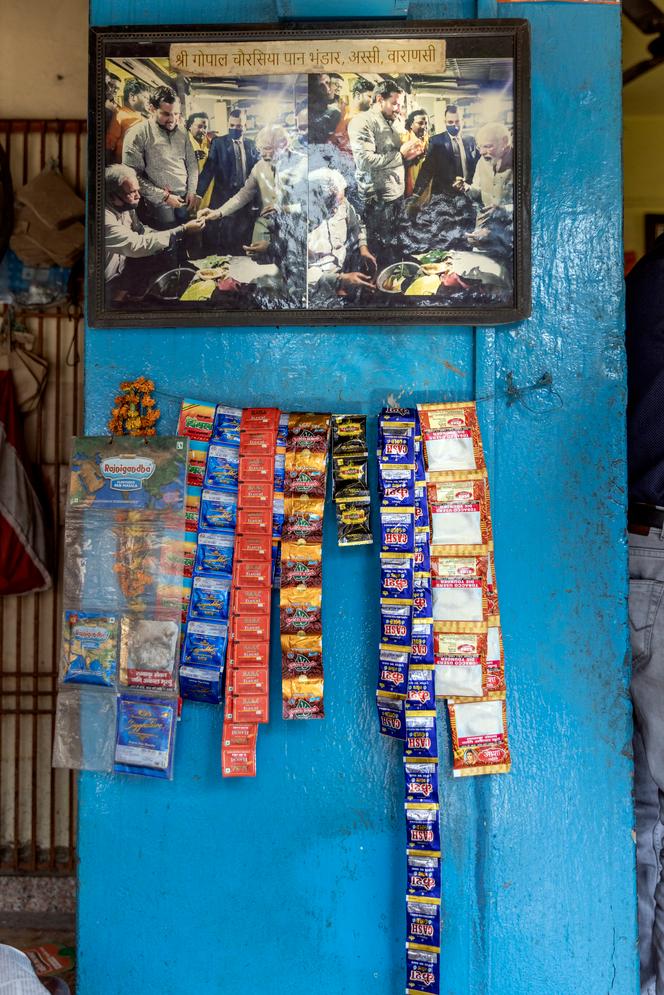
Pappu is a wealthy man and his tiny stall in a teeming district of Varanasi is always busy from morning to night. On the eve of the general elections, journalists of all stripes flocked there to sound out the opinions of customers who had come to enjoy his chai or mint and citrus tea. The walls were covered with the tea vendor’s trophies: photos of himself with Narendra Modi. The Indian prime minister, who claimed to have done the same job as him as a child, to help his father in his village of Vadnagar, Gujarat, has ensured the store’s success since his visit during a previous campaign.
In 2014, the myth of the humble tea seller, the self-taught man from the modest Ghanchi sub-caste – the oil pressers – and the promise of development for all ensured Modi’s rise to power against the Nehru-Gandhi dynasty. This privileged family had been worn down by too many years in power, corruption scandals and a whiff of nepotism. “Acche din aane waale hain,” “the good days are coming,” he promised voters.
The robes of the nation’s protector
Modi, who had no prior national-level experience, only serving as the chief minister of Gujarat from 2001 to 2014, was seen by the upper-caste Bharatiya Janata Party (BJP) as the man who could transcend caste barriers and broaden the saffron party’s base. This image still holds sway. In the streets of Varanasi and elsewhere, his supporters still praise the “man of the people.” “Modi is a leader who thinks of modest people like me, he’s fraternal. Not like the others who only think of the interests of their political family,” said 34-year-old Shankar Sahni, a street vendor selling idlis, Indian rice-based delicacies.
During the 2019 legislative elections, another image prevailed: that of the strong man. Modi had been weakened by the 2016 demonetization of 500 and 1,000 rupee notes, which hit the poor and cash-dependent workers hard. However, his response to the Pulwama suicide attack in Kashmir, perpetrated by Pakistani terrorists against the Indian army two months before the polls opened, ultimately secured his victory.
At the time, the candidate and prime minister had donned the robes of the nation’s protector by launching surgical strikes in Balakot, in Pakistani territory, allegedly home to a training camp of the Islamist group Jaish-e-Mohammad. He emerged victorious at the polls, achieving, against all odds, a result superior to that of 2014. Patriotism had overshadowed issues of unemployment and growth.
‘The concept of a great India’
You have 50.31% of this article left to read. The rest is for subscribers only.